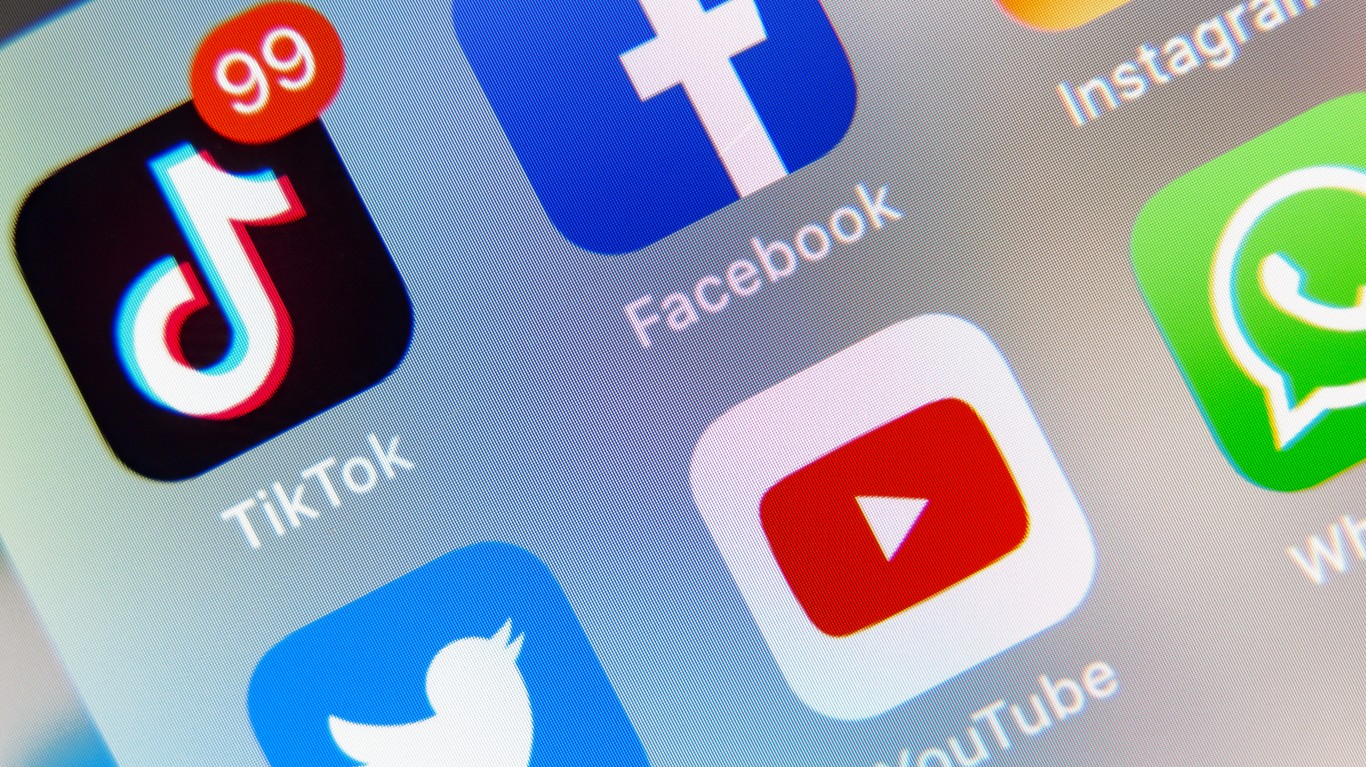
Ever since Apple Inc. (NASDAQ: AAPL) announced last year that it planned to include a new privacy feature in the iPhone iOS 14 operating system, the line in the sand between Apple and Facebook Inc. (NASDAQ: FB) has gotten deeper and wider.
[in-text-ad]
Apple’s privacy feature, called App Tracking Transparency (ATT), which will be available to all iPhone owners with devices capable of running iOS 14, allows users to control which apps are allowed to track their activity on the internet. To say that is a threat to Facebook’s business model is an understatement.
On Facebook’s conference call last month, CEO Mark Zuckerberg called Apple one of his company’s “biggest competitors.” He wasn’t referring to some new social media platform from Apple. Zuckerberg was referring to ATT, which he believes will suck out a lot of the oxygen Facebook gets from the data it collects from its users.
And Zuckerberg is right. Apple CEO Tim Cook said last month at a conference on privacy and data protection:
At a moment of rampant disinformation and conspiracy theories juiced by algorithms, we can no longer turn a blind eye to a theory of technology that says all engagement is good engagement — the longer the better — and all with the goal of collecting as much data as possible. … It is long past time to stop pretending that this approach doesn’t come with a cost — of polarization, of lost trust and, yes, of violence.
Technology, Cook added, “[D]oes not need vast troves of personal data, stitched together across dozens of websites and apps, in order to succeed. Advertising existed and thrived for decades without it. And we’re here today because the path of least resistance is rarely the path of wisdom.”
It’s pretty clear from these statements that Cook is referring to Facebook as being “juiced by algorithms” that collect as much data as possible and then monetize that data either by promising more targeted advertising or by selling it. While Facebook doesn’t sell its users’ data, the company monetizes it more effectively than any other company.
Even though Facebook reported a monster fourth-quarter, its share price dropped following the announcement because the company warned of “significant uncertainty ahead,” mostly due to the perceived threat from ATT. Zuckerberg made the company’s position clear:
Apple has every incentive to use their dominant platform position to interfere with how our apps and other apps work, which they regularly do to preference their own. This impacts the growth of millions of businesses around the world … [and] many small businesses will no longer be able to reach their customers with targeted ads. Apple may say that they’re doing this to help people, but the moves clearly track their competitive interests.
It has become gospel among advertisers that more targeted ads perform better. Consumers see only ads that are relevant and advertisers get more bang for their bucks. But how much is it worth to consumers? Are they willing to exchange their privacy in return for an ad to buy a product related to a different product they may have bought or even just browsed? Some will welcome that; others are likely to feel that they’re being stalked.
Apple wants to give its users a choice; Facebook contends that its targeted ads also offer choices. The difference, of course, is that Apple wants to give you that choice upfront (as part of the price you pay for an iPhone), while Facebook wants to give you that choice after it is paid for displaying the ad.
Facebook is positioning itself on the side of small businesses, which stand to lose as much as 60% of their online sales, according to Facebook Chief Operating Officer Sheryl Sandberg. Apple is portraying itself as the defender of privacy in an era when that may be the scarcest commodity of all.
Thank you for reading! Have some feedback for us?
Contact the 24/7 Wall St. editorial team.





